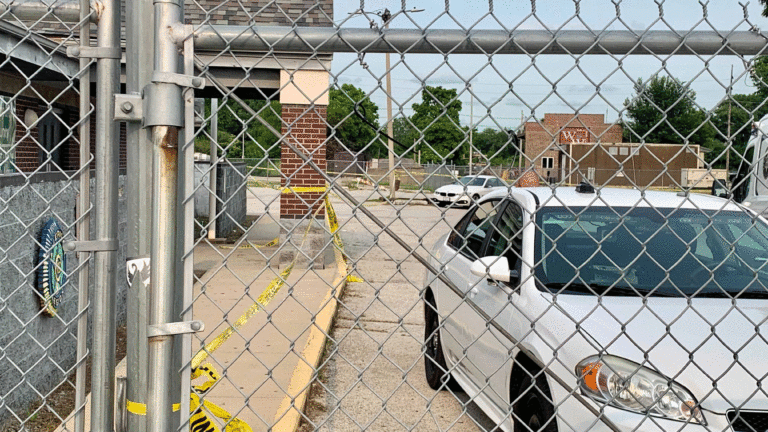URBANA – Halfway through 2021, Urbana had already surpassed the total number of shootings that took place in 2020.
Last month, the Urbana Police Department reported 55 shootings had occurred so far this year — more than the 53 that occurred in all of 2020.
This follows a trend of heightened gun violence throughout the country. With 390 mass shootings so far this year, 2021 is now on track to be America’s deadliest year of gun violence in the past two decades.
Chief of the Urbana Police Department Bryant Seraphin says having community conversations about topics like education, housing and nutrition are essential to understanding why gun violence is on the rise.
“The ‘why’ is much bigger than the police,” he says. “One of the things that we’ve done a lot better now is: [being] able to have a conversation that is much broader and deeper with regards to why some of these things are happening.”
Speaking at this month’s Champaign County Community Coalition meeting, Champaign Police Chief Anthony Cobb said there were 140 gun-related incidents as of July 9. In 2020, Cobb said there were 189 for the entire year.
Julia Reitz, the Champaign County State’s Attorney, says many of these cases aren’t being prosecuted. Of the more than 200 shootings this year in Champaign County between January 1 and June 1, only 25 made it to her desk.
Of those, Reitz says 24 cases have been charged.
Seraphin says there are many things to look for in order to count an incident as a shooting.
“If we have damage to property, injury to a human, if we can find physical evidence, like casings, or bullet holes, or whether we have multiple reporting parties — or maybe we actually don’t find anything — we would still count that as an issue.”
Reitz says it’s often very difficult to identify a suspect — let alone find a witness who will cooperate with the police.
“To charge someone with committing a criminal offense, I have to have sufficient evidence to move forward with the case and prove it beyond a reasonable doubt,” Reitz says. “That’s an extremely high burden of proof.”
Some local organizations have been trying to address the problem by tackling underlying issues. CU Fresh Start, a community-based organization, uses a three-pillar approach including law enforcement, local services and the community.
Mary Catherine Roberson, a spokesperson for the City of Champaign, says CU Fresh Start is taking a holistic approach to preventing gun violence in Champaign-Urbana.
Roberson says a liaison reaches out to people with a history of gun violence offenses to try and meet their needs and give them an opportunity to change.
“What we found is that individuals can choose a different path, but it takes a large amount of support from communities, social service providers and our entire network,” Roberson says.
She says CU Fresh Start participants are often offered opportunities to receive their GED, get a job or talk to someone who has been in their position.
The kind of support offered changes based on the person’s needs.
“When we can partner them with people who have similar lived experiences, we find that they really tend to thrive,” Roberson says.
Through one-on-one mentoring, Roberson says participation in CU Fresh Start’s program has doubled since they adopted a one-on-one approach to inviting people to participate, instead of extending invitations to groups through “call-in” events.
Ultimately, she says building trust with people with a history of gun-related offenses — and the impacted community — is essential to curb local gun violence.
“The more often we show up in communities that have been impacted [by gun violence] on a consistent basis, it will build trust,” Roberson says.
Farrah Anderson is a student journalist for Illinois Newsroom. Follow her on Twitter @farrahsoa.

